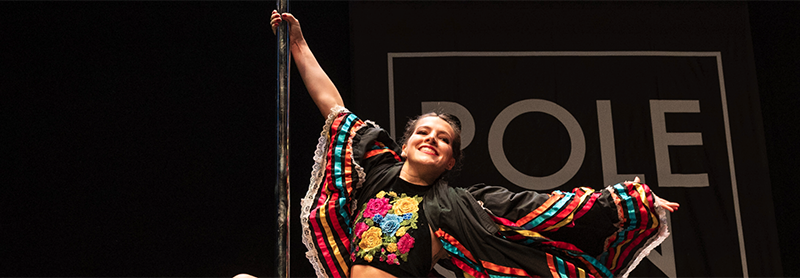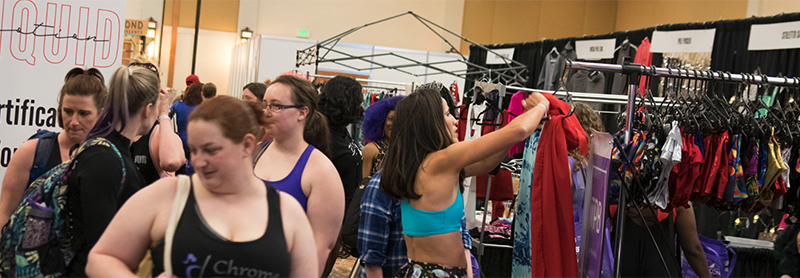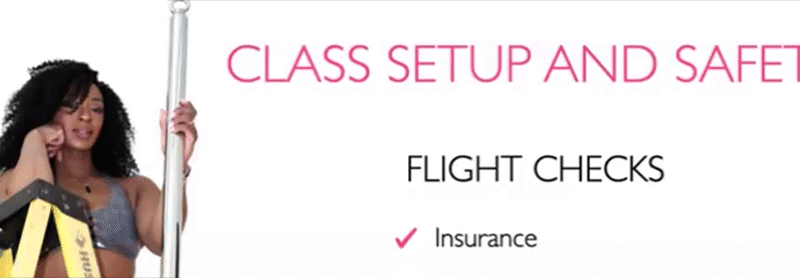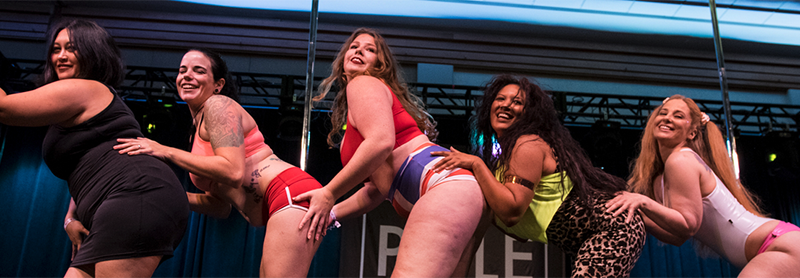A train-cation is a trip (usually away from home) where you focus for a specific…

How to get sponsorships for your pole business
Whether you are a performer, a pole event, or some other form of pole business, getting sponsorship money is tough!
Most businesses in the pole industry are small. Even the few larger pole businesses aren’t actually *that* large. Very few organizations have the budget to spend on sponsorships.
Here are some thoughts on how to approach potential sponsors (inside and outside the pole industry) and what to expect.
Aligning your sponsorship expectations
Most pole businesses are small and cannot afford to do big (or any) sponsorships, especially in actual dollars.
Some pole businesses may be interested in sponsoring “in kind” which means they might provide equipment, items for a “swag bag,” towels for pole cleaners, or other items in exchange for being listed as a sponsor rather than actual cash.
When making your budget, consider sponsorship or advertising revenue as a small portion of total revenue.
If you are an individual performer or pole instructor, explore becoming a brand ambassador and read this post first. This situation likely also doesn’t come with actual cash but could provide critical things to help you on your journey like equipment, apparel, and grip aids.
How to approach potential sponsors
Create your sponsorship packet, first.
This process will help you understand what you can offer potential sponsorships, help you confirm pricing, and develop important terms and conditions BEFORE you start contacting potential sponsors.
Once you have a sponsorship packet, or at least a list of options, start contacting potential sponsors via email or phone.
Looking for businesses within the pole industry is an obvious choice but also look to your local community. There might be larger businesses in your community who could be sponsors.
Also look for businesses tangential to the pole industry.
Look at the demographic of your pole business or event and understand what they like and what they spend money on then contact businesses in those spaces. Maybe a swimwear company would be interested in sponsoring your business or event because that apparel doubles as pole wear!
Ask existing customers for recommendations! Maybe they know business who could sponsor your business or event, or they have some ideas of where you can look based on their own buying habits.
Generally big businesses (like Red Bull or Nike) don’t respond to solicitations. However, if you know someone at a larger business and have an “in,” consider working those connections—you might get a response!
Sealing the deal
Remember, you should have a contract for basically anything.
Once you have an interested sponsor ready to actually give you money, make sure everyone’s expectations are clear. List these in your sponsor packet or potentially have a separate contract depending on your situation.
Generally. the more money someone is willing to give you, the clearer your terms should be in case the relationship sours.
Sponsorships can be a way to generate revenue, but they shouldn’t be the primary way that you expect to make money. The more you grow and *prove* that your business, brand, or event is appealing to work with, the more sponsorships you’ll likely book.



